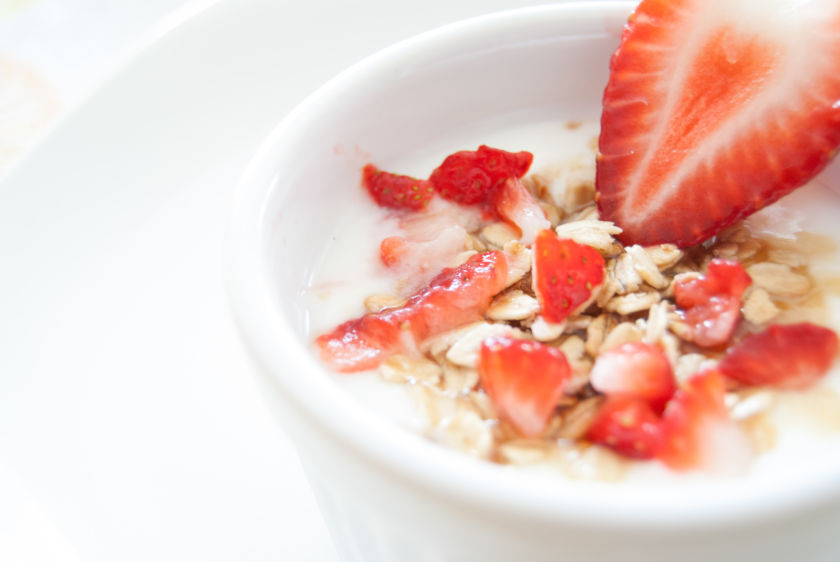Caffeine is an alkaloid (compound produced exclusively by plants) that works as a nootropic (stimulant of the nervous system). Caffeine is the most widely consumed psychoactive substance in the world. The usual source of caffeine is coffee, but we also find it in Red Bull-type energy drinks, in tea, guarana, cocoa and cola drinks, among others. At the sports level it is important to make it clear that caffeine is not dopping.

What happens in our body when we drink coffee?
As usual in this blog, the answer to this question usually begins with “it depends”. But generally – how little we like to say this phrase – caffeine reaches the intestine in about 20 minutes, we absorb it and it reaches the liver to be metabolized. The caffeine values in the blood are already high between 30-45 minutes. The peak of concentration is usually at the time of having been ingested. After this peak, the concentration decreases, having a half-life in the body of about 3-5 hours.
How does caffeine work?
To understand its effect, we have to first introduce you to adenosine, a neurotransmitter involved in sleep cycles. When adenosine binds to its receptors, it decreases the activity of the brain causing a state of drowsiness in our body (desire to sleep). In addition, it also dilates the blood vessels to give the brain better oxygenation during sleep. Well, the Caffeine has a molecular structure very similar to that of adenosine and when it reaches our nervous system it manages to “trick” the receptors, binding them and preventing adenosine from doing so. If adenosine fails to bind to the receptors, the result is that we feel less tired or fatigued.
The main physiological reasons / effects that help this delay in the onset of fatigue would be these:
- The increase in the plasma concentration of free fatty acids, thereby reducing the use of glycogen as an energy source (speaking in runner, we throw away less sugar), since the muscles have fat “at hand” for fuel. This allows our glycogen store to last longer, which is great.
- The direct positive effect of caffeine on the muscle, increasing the mobilization of calcium and producing a greater excitability of muscle fibers.
- Stimulation of the nervous system that reduces the perception of fatigue.

So much coffee to train hard?
No. In a very generic way, moderate caffeine consumption is established around 250 mg / day (about three cups of coffee), an amount that is not associated with any health risk.
It is true that caffeine can improve athletic performance , but of course this will depend on many other factors, including the athlete’s condition, the type of exercise (intensity, duration …) and the dose of caffeine.
According to the conclusions of a study carried out by Graham, Hibbert and Sathasivam in 1998, it was considered that there is a possibility that coffee contains some substance that performs an antagonistic function on the ergogenic effect of caffeine. It has been observed that the ergogenic effect of caffeine is greater when ingested in the form of anhydrous caffeine (as an isolated supplement) than when the same amount is taken in the form of traditional caffeine ( a through coffee)
In sports, it has been shown that the intake of caffeine before a resistance exercise of medium or long duration, delays 10-20% the onset of fatigue and that can last up to 6 hours after ingestion. On the other hand, the studies are more controversial with anaerobic and short-term sports, not presenting any ergogenic effect in these.
Caffeine is a supplement that improves athletic performance, but is there a common response to the effect of caffeine? The answer is no. There are factors that determine its absorption and metabolization, therefore the supplementation strategy must be personalized for each athlete.
Factors can be classified into genetic and environmental.
The expression of the genes CYP1A2 and ADORA2A is closely related to the metabolization of caffeine or the expression of adenosine receptors. The CYP1A2 gene synthesizes an enzyme (C-P450) that is responsible for breaking down caffeine, small changes in this gene make it possible to classify people into slow or fast metabolizers. The ADORA2A gene causes the synthesis of adenosine receptors. When this neurotransmitter binds to its receptor, it makes us feel tired, something negative if we are looking for sports performance. Caffeine fights against adenosine by binding to these receptors, the more caffeine the less adenosine can bind to the receptors and therefore the less tired we feel.
The other factors that can affect caffeine metabolization are smoking, menstrual cycle, vegetable intake, training status … The dose, time and format also influence.
The response to caffeine supplementation is so individual that the recommendation is to use a trial and error strategy. Try different times, doses between 3-9 mg / Kg, formats such as pills, drinks or gum (it is the most effective since it is absorbed in the mouth and prevents the digestive process) and assess the effects they produce.
Does caffeine dehydrate?
After much documentation, this seems to be a somewhat controversial topic. In this article of total reliability they conclude that caffeine, in normal doses, does not have a diuretic effect and, therefore, does not have a “dehydrating” character.
When should I take it?
As an ergogenic aid it is recommended that, if the activity requires power and / or speed, it is consumed 3 hours before, and if it is an endurance test, 1 hour before.
The doses will depend on the test to be carried out, the athlete in question and their tolerance, since habitual caffeine consumers have a higher tolerance than those who do not usually take it. That is, if you drink 3 coffees a day, you will not notice the supplement as much as someone who does not drink any coffee, tea, or cola … This is why, sometimes, it is recommended to interrupt the usual consumption of caffeine to notice its effect more on the day of the test.
Even so, the most recommended doses remain between 1-6 mg / kg of weight, knowing that there is no greater effect when the dose exceeds 9mg / kg of weight.
As always, it should be remembered that it is very important not to test the day of the test or competition, and always use some training to see how this ergogenic aid works on you.
If you are looking for an online nutritionist who can design your personalized diet , we can help you. Take a look at the page where we explain our service with online nutritionist and their rates.


